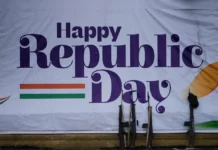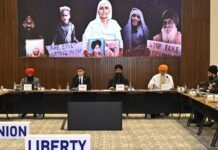WASHINGTON: India has done an excellent job in reducing the coronavirus-related deaths by clamping a nation-wide lockdown to combat the deadly virus that has claimed over three lakh lives globally, according to an eminent Indian-American cardiologist.
India currently has over 1,82,00 confirmed cases of the coronavirus and 5,164 deaths, according to the Union Health Ministry.
According to the World Health Organization’s COVID-19 tracker, India is the seventh-most affected nation in terms of coronavirus cases after the US, Brazil, Russia, UK, Spain and Italy.
The US is the worst-affected country in terms of cases with 1.79 million cases and over one lakh deaths, and globally over three lakh deaths have been reported and more than 6.15 million infections.
A recent Columbia University study that supports that death is prevented by earlier lockdowns bears the fact that Narendra Modi’s government has done an excellent job in clamping lockdown,” Tennessee-based Dr Indranill Basu Ray said in a statement.
This modeling study showed that if New York had initiated lockdown even two weeks back than the March 3 date when the deaths were around 65,000 – it could have been reduced by 50,000, said Dr Ray, a cardiologist and cardiac electro-physiologist who has also been a Professor of medicine and public health at multiple universities in the US and India.
The lockdown in India was first clamped on March 25 and spanned for 21 days, while the second phase of the curbs began on April 15 and stretched for 19 days till May 3. The third phase of the lockdown was in effect for 14 days and ended on May 17. The fourth phase ended on May 31.
The country had registered 512 coronavirus infection cases till March 24.
“My opinion for India would be to slowly open places for people that are not hotspots. Determining areas of opening can be based on multiple factors…” Dr Ray said.
A slow and step ladder approach may also be taken with a change in course as mandated, he said, as the nation-wide lockdown in containment zones will continue till June 30 in India but extensive relaxations in a phased manner from June 8 are listed in the Union Home Ministry’s fresh guidelines on tackling the COVID-19 pandemic issued recently.
While hotspots would need to be under extended lockdown but increased testing is mandatory along with isolation to prevent rapid spread, he added.
This may be particularly feasible, as geographical hotspots seem to be far apart based on official data. More than 80 per cent of the active cases are in five states – Maharashtra, Tamil Nadu, Delhi, Gujarat and Madhya Pradesh – and more than 60 per cent of the cases are in five cities, including Mumbai, Delhi and Ahmedabad.
These hotspots should maintain at least a partial lockdown state and enforce strict social distancing to prevent massive spread and large-scale death particularly of the elderly and the sick, said Dr Ray.
According to Dr Ray, it is essential to follow scientific guidelines but open up the economy to mitigate further financial disaster.
India is a country with millions still below the poverty line and a few million who are the lower middle class who depend on day to day earnings to provide two square meals to their family and children, he noted.
Our information about what COVID-19 has changed to a large extent on what we had known before. COVID-19 being a new disease, a lot was unknown about this disease, he said, adding that strategies to maintain physical distance, wash hands, and try to avoid touching your face, including wearing masks, especially in crowded places, can mitigate most of the spread. PTI







